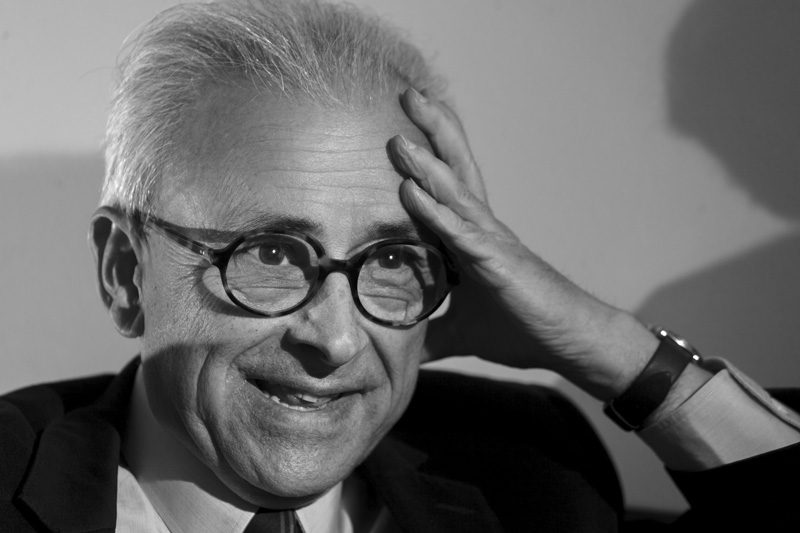
(Versión en castellano aquí)
From young António Damasio (Lisbon, 1944) interested in becoming a filmmaker to today’s neurologist and researcher expert in emotions there’s a smaller gap than what anyone could imagine. This scientist and writer has always been interested in Humanities and the study of feelings. Every single book of his shows this interest which goes beyond the disciplines and addresses one of the most central aspects of our humanity. Descartes’ error, Looking for Spinoza or Self comes to mind reflect a great passion to understand where affection, emotions and feelings which shape our life and make us who we are are born.
We take advantage of Damasio’s visit to Spain during the launching of his last book , The Strange Order Of Things, to meet him in La Pedrera and talk about his many and diverse interests. Cinema, literature, memory, philosophy and –obviously- emotions show up while we talk with a Damasio fond of Shakespeare’s, Proust’s, Hitchcock’s and Welles’ work. Especially Welles. Because the answers to many of his questions cannot be found only in labs. Quite often, cinema, like literature or music, can give us a more accurate portrait of human emotion that any scientific study.
Emotions and feelings are at the centre of everything human. It’s funny how fast we forget it.
It’s not just funny, it’s amazing that we forget so easily because we don’t pay attention to something that is so central. I think it has a lot to do with our culture. Our culture has emphasized so much the knowledge of objects and actions and the knowledge that comes from science that you end up forgetting this reality, the one in which you and I are right now. It’s something that has to do with the foundations of our life, it has to do with regulation, it has to do with how we feel. Then on top of it comes this big edifice of culture, in the tradition sense, and it obfuscates. It’s a mixture of forgetting and covering. We are covered by knowledge, we are drowned in knowledge. And from the point of view of the humanity that’s actually not good.
Which feeling moved Antonio Damasio to study the feelings?
That’s an interesting question because I think I have always had an interest in feelings given my old interest in humanities. I grew up, actually, very interested in the human mind in general. I didn’t know I was going to become a neuroscientist, because when you are ten or twelve you don’t know these things, but I knew I was interested in literature, I knew I was interested in cinema… In fact, for many years I thought I might become a film director or a writer in general. Then I discovered that there was something called neurology -it wasn’t even called neuroscience then-, and with neurology what people were trying to understand was the mind. And that’s when I went to medical school and became a neurologist. For a long time I studied language, memory… Practically, the first project of my career was myself and my wife. Fundamentally, we studied perception, language and memory. And then, at a certain point, my interest in emotion came back because of the patients I was studying. I made a complete inflection and it’s not that I stopped studying the other things, but I turned my lab totally in the direction of studying the emotion. And then it became one of the main labs to work in emotion, feeling and decision-making related. It’s an old interest that the became very targeted. It’s quite curious because our work had been very well received in terms of language and perception so far, and people said “don’t study emotions, it’s of no interest”. People had this cognitive bias, and said that “you are going to destroy your career.” And, of course, it’s the opposite, it was the right decision. I should have done it earlier.
Were you afraid of taking that decision, when you heard what those experts said?
Not really. It was a risk because at the time we made that decision people were not even studying emotion. I remember that at the Society of Neuroscience we had the first symposium on neuroscience and emotion in 1995. That’s not so far away. There had never been a symposium on emotion. So it was a risk. But then people changed, especially after a number of papers that were very well received there was a book called Descartes’ Error and that’s what really changed things.
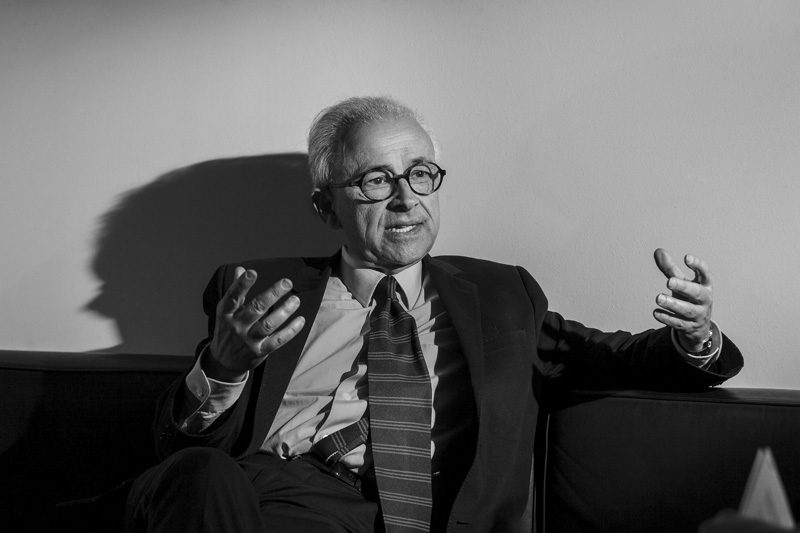
People often say that you are more a neurophilosopher than a neuroscientist. Shouldn’t be both aspects together?
Yes, of course. If one is doing the objective research and studying different systems and doing experiments. We have a large lab and a number of people working running experiments that have to do with different aspects of feeling: we are doing things on opioids, we are doing things on synaptic and non-synaptic transmission, so of course, that is neuroscience. On the other hand, the thing that I am most interested in is in theoretical neurobiology, and if you want to call it philosophy that’s fine, I think it’s very nice, but technically it’s a mixture of basic neuroscience and theoretical neuroscience. For example the comments on The Strange Order of Things about the fact that we build minds not with the nervous system alone, but with the nervous system in cooperation with the body. That has nothing to do with philosophy. That is theoretical biology in relation to what we know about the body and the nervous system. And that’s a very central idea in the book. On the other hand, the extension of the idea of homeostasis in connection with feeling and the extension into the culture, that is part theoretical biology and something that you could say philosophical.
Are there any differences between Damasio the researcher and Damasio the writer?
I don’t think so. It’s exactly the same person. I enjoy writing, it’s good to be able to have ideas and then put them in a way that people can understand and respond to. I enjoy writing because I enjoy reading. I’m interested in how people write. Whenever I write a book, which is not fairly frequent, I always have some people who are sort of like in the background. In this case it was Scott Fitzgerald, and there are a couple of references to him because I was thinking about the state of our culture and the things that are going wrong in our culture. It’s nice to put yourself in the mind of what that person might have been and would’ve looked at the world. I was thinking especially in Great Gatsby, an incredible novel of a time of a great success and, at the same time, fatal.
You also mentioned Proust.
It’s very difficult to write about memory and not mention Proust.
You are also a great fan of Shakespeare. Do you think novels or poetry could help scientists in their research to a better understanding of human feelings?
Absolutely. If you are smiling or laughing at what I was saying, that’s emotion. It’s something that I can observe in you and they can observe in you, it’s public. But feelings are something that I have in my mind and you have in your mind, and I cannot see or observe your feelings and that is exactly the kind of conscious process which is the material of writers. A novelist or a great playwright like Shakespeare works with the mind. Your question is “Can their work be of use in neuroscience?” Of course! But only if those people want to pay attention to it. One of the great problems in neuroscience right now is that people are too concerned with the outside, with the exterior, because they are totally obsessed with objectivity. Because, going back to your first question, about why is it that people are not more worried about feelings, it’s because people are obsessed with objectivity. It’s as if because it is in your mind and it’s your experience it’s less objective. Well, it’s less objective in the sense that it’s only your observation. But your observation can be very rich. I’m yet to see many things that can be greater in terms of analysis than what Proust did in relation to mind, or Shakespeare, for that matter. They are able, with their mind, to get that with great quality and great finesse of observation. And then there’s the fact that I cannot enter your mind, but I can ask you what’s on your mind, so I can judge what goes on and, therefore, make a group of those observations. Of course, if you are going to lie to me, that’s a different thing; we have to assume that you have the possibility to live in a normal world where people speak the truth.
Which is the role of the arts in general in our culture?
As I say in the book, the arts were motivated by feelings. It’s not conceivable that the arts, as well as other cultural instruments or practices, could have emerged if it were not for the fact that we can suffer, have pain, be sad, depressed… or want to have pleasure. It’s that dynamic of the pleasure and the suffering that runs human life. It already runs other non-human lives, but with us it’s an influence that, because we have an intellect, can direct us to generate other things. You can generate poetry, visual arts; you can inspire Mr. Gaudí to build this house… things of that sort. So the role of arts is to respond to the feeling states and produce an increase of the positivity of the feeling or, at least, a decrease of the negativity, and by doing so allow you to continue your life and develop other things that maybe of practical use. So the role of arts in humanity is basically to produce homeostasis, a return to equilibrium and the possibility of survival. Homeostasis is the key, and it already existed in creatures that did not have consciousness. Once you have consciousness you can know that you have feelings, so you get a new level of control over your life. That’s the great beauty of it. As creatures become more complex, we have the possibility of developing a whole new level of operation which can guide you into the good direction. If you are a small creature without consciousness, you are at the mercy of homeostasis, of an automatic system that is generated by your genome. With you and I, we have a feeling, and that feeling is allowing us to have a say. It’s giving us an opportunity. Sometimes we don’t pay attention and don’t do the right thing, but we can do the right thing.
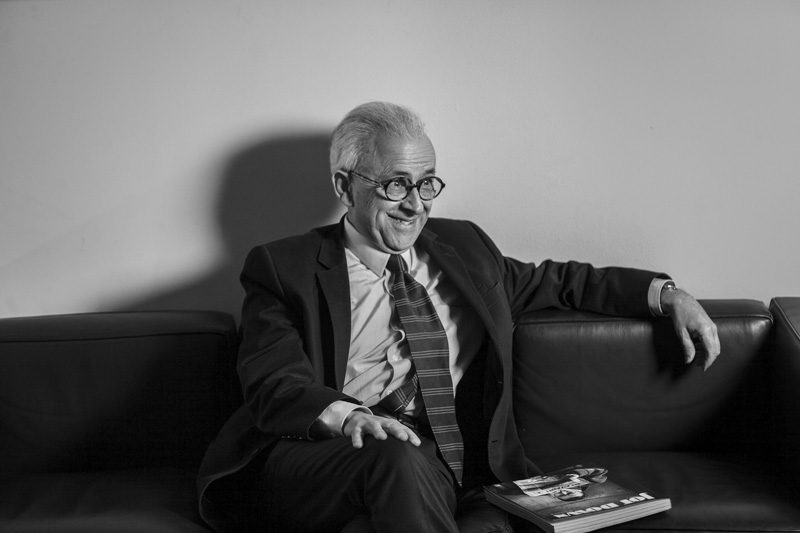
Returning to arts, do you agree with Nuccio Ordine, who talks about the usefulness of the useless? He defends the idea that nowadays we are living in a society of utilitarism, where everything must be useful.
I don’t know him, but the answer is yes. There are plenty of things that appear to be useless, but they are not. Clearly the arts are not useless. Of course, they can be misused, like anything else, but they are useful precisely because of the genealogy that I create for them and because of the fact that they can restore your lost balance. The arts are useful, but even if they were not useful in that deep sense I am strongly against the utilitarian idea. That’s why I am against ideas such as, for example, “If less people are dying today than 20 years ago the world is a better place.” Wait a minute, it depends; because if less people are dying but a smaller group of people are suffering more I don’t think it is a better world. That’s the utilitarian position, which I think is an incorrect position. It’s actually very cruel. Utilitarian positions are very good for people who work with machines, but we are not machines. The fact that we can suffer and we are not vulnerable means that we are not machines. The machine is not going to disappear and die unless you take an axe and destroy it. But we do.
Talking about suffering, something very interesting about books or movies is that we look forward to have bad feelings, like grieve, sorrow… How can we explain that?
There was a paper last year about why you like to listen to sad music. It’s very interesting; it has the same explanation, in general, that allows us to enjoy Alfred Hitchcock movies. First, it allows us a preparation, it prepares us to the worst. It’s like training, you can train your muscles but you can also train your mind to experience things that you really don’t want to experience. You don’t want to be in a situation where you could be ambushed and killed. That gives you a sort of a bizarre pleasure, because you are learning what could happen to you, and that may reduce your chances of being in that same situation. Music is a very good example, because we do like sad music. I was born in Portugal, and “fado” is an exercise in sadness. And people adore it. And you don’t have to be Portuguese. It’s because it creates a protected space. When you are listening to something sad in music it relaxes you and reduces your stress level. Then, generally because of the quiet, it allows you more concentration and gives you space to reflect on what is causing you troubles, but it also gives you beauty and allows you to feel some kind of pleasure. There are many kinds of sad music: French chanson, blues and spirituals… Spirituals and blues are exercises in returning to joy while the experience in suffering. There are very subtle differences, because spirituals are going through suffering, because they were literally written by slaves.
Things have changed a lot since you proposed your first theories. How much do cognitive sciences owe to Phineas Gage?
We owe him a little bit. Phineas Gage is a sort of emblematic case. My wife is very interested in that case because with the new techniques of imaging it was finally possible to try to get an idea of more or less what happened. Then we thought it was such an intriguing story because when you look at the history of neurology all of our studies of behaviour and mind began with neurology. Neuroscience was invented in the 20th century. It was neurology and psychiatry. If you go back to the 19th century it was the people that were studying patients with brain damages. And it is very interesting that with Phineas Gage was this huge discovery that frontal lobe damage could alter your social behaviour. But that was a case that was never really solved because he had no autopsy, so with all the other cases the people knew where the stroke was but with Phineas Gage all you had was that stupid bar that went through his skull. And yet, it’s no less important to have a frontal lobe damage that having it in the language area, because someone who loses the ability to speak well is still a human being. With difficulties that can be improved, but somebody who has lost the ability to live socially is in fact a handicap. So that’s why we were interested. At a certain point we had something like thirty Phineas Gages because we had so many people with this damage, but everybody is always asking even today ‘tell us about Phineas Gage’. That’s why people remember, because of the bar.
And what happened to Phineas is close to what you say in your last book, that the absence of feelings would spell a suspension of being?
He didn’t lose all feelings. What Phineas Gage loses is the ability to emote and feel in relation to social situations. Patients that have the same damage as Phineas can still feel pain, pleasure, can still suffer…
You say that emotions and feelings come from homeostasis.
Emotions are really the very first expression of the homeostatic guidance and feeling is what you get when you experience those emotions.
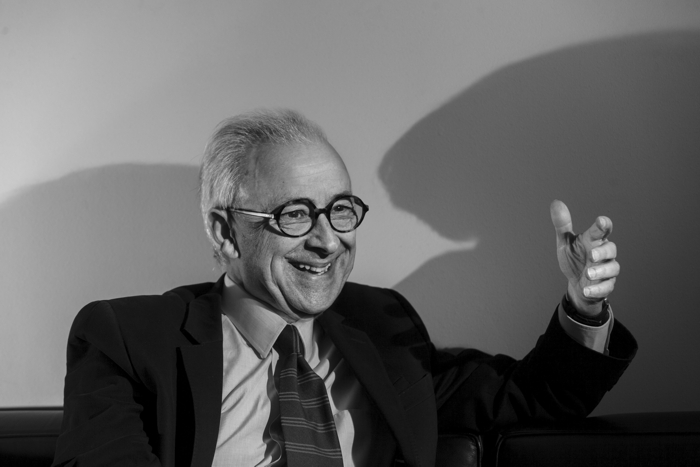
I always imagined our body like a set of sensors for the brain. You say that the neural system was born as a body assistant. Are those opposite ideas?
No, they are perfect in keeping with the other one, because the way in which you become an assistant to the body is to sense it. So you are quite right. Sensing and responding are things that you can find in bacteria. They sense what is going around and respond to it. They just don’t know it because they don’t have a nervous system, but they can sense and respond. What happened is that gradually the nervous system became a better way of sensing than what bacteria have. Instead of doing it just with molecular props they started doing it with nerve fibres and eventually they come to the possibility of representing some things. That’s the great pirouette because when you have a small creature like a bacterium the creature can sense that there is something wrong and act in a different way. But we do something several steps above, which is that when we sense –with more complex senses like touch, hearing or seeing- we can create a representation. So not only are we going to respond, but we have this internal picture, or sound, and I have a representation of that which of course, if I’m seeing, I have the possibility of relating the sound with the vision. By the way we have in our labs a lot of studies in integration of senses that show how the brain integrates what comes through hear, what comes through touch and what comes through vision. But we are still trying to know what do we do this for. Right now we can use it for creating art of engineering objects, but in all of those functions the root is homeostasis, and the root is being a servant to the body and the sensing is what allows it to serve the body. It’s that sensing function that allows you to serve the general function of the body, which is to exist and survive.
Is the concept of homeostasis in conflict against our sense of free will?
No, I don’t think it is. What is very important is to realise that our free will is limited. We are not free to do everything that we want to do. And there are lots of things that we are obliged to do because of our conditions, either physiological or social. So the freedom is limited. There is free will but that doesn’t mean that there is all the free will in the world. For example, if you now ask me to put myself upside down and stand on my head, I’m going to say no. And I have the freedom of will to do that. And if you ask me to arrange to get Trump impeached, no I can’t, it’s not in my possibilities.
Daniel Dennett told us that “One of the mistakes people make is that they think that just because we are caused by all the conditions we can’t control our destinations”
Yes, it’s the same thing. It’s not that there is not free will, but it’s limited, it’s conditioned by our circumstances.
How do we conceive the idea of suicide, with the homeostasis rules?
That has to do with a very good case of malfunction. It’s the same thing as cancer. Cancer is a malfunction of a system that usually works in a certain way and suddenly there is a type of cell that shouldn’t multiply but it multiplies. There is an abnormality in the system. It’s exactly the same thing as suicide or, to begin with, the depression that leads into suicide. So the system is malfunctioning and it cannot self-correct. Normally, when you are sad you have ways of compensating: being with people who are happier, trying to find why you are sad and trying to find an explanation, taking medications, drinking alcohol, taking drugs… Al those are compensations to something that is malfunctioning. And suicide happens when all those compensations fail. It’s against homeostasis, it’s a failure to homeostasis.
What do you think is bigger: the gap between unicellular homeostasis and the organization of our cultural world, or the gap between our neurons activity and the construction of mind and consciousness?
The first one, that’s where the big distance is. Because once you have neuronal activity you are already on the way to create something that could give you the necessary consciousness to have feelings and to eventually create cultural activity in the proper sense. Although, I like your question because as you remember, in the very first chapter [of The Strange Order of Things] I talk about bacteria having cultural attitudes. It’s actually very interesting. There’s a lab of one of my colleagues, in Los Angeles, where you have bacteria that for example can be in a group and they are to defend themselves. And normally, if they are related by molecules, because they have the same genomes, the bacteria work together and defend themselves as a group. And of course all this is done automatically, because they don’t know in the sense of knowing, they have no mind. Those incredibly microscopic creatures already have a social organization. It’s almost pre-cultural, in the sense that if you cooperate you are with me, but if you don’t want to cooperate I am with your enemy. Those fundaments which define our world… look at our world of politics: if you are with me I like you, if you are not with me I am going to fight you. All of those things that you can see in the macro-organization are already present in the very small-scale level, which means that this stuff is coming out of life conditions, it’s deeper than we are, and that’s why I say at a certain point in the book that this is such our unconscious, it’s much deeper than when Freud or Jung ever thought. The Freud unconscious is a bit lower than this unconscious, it has to do with sex or stuff like that. But this is deep, deep, deep; in the conditions of life itself.
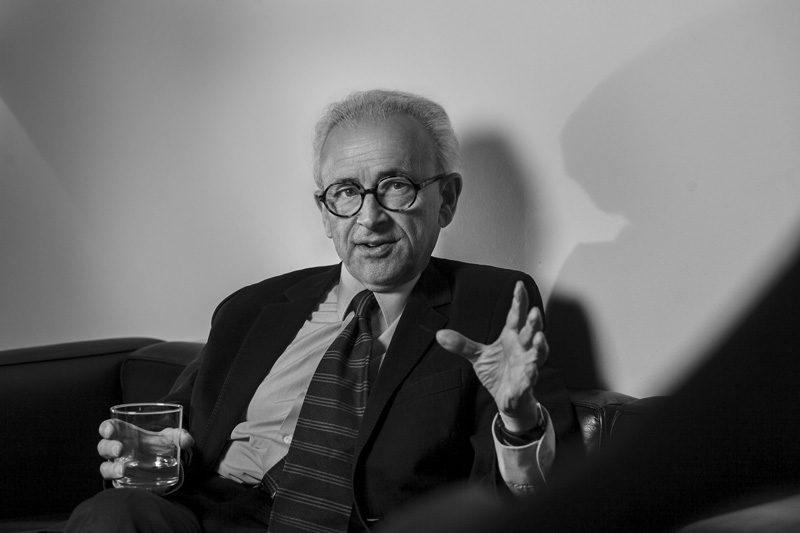
But homeostasis loses its efficiency in big groups. Do you think that globalization could move us to totally forget our feelings?
The larger the group is, the more likelihood there is that there is going to be a conflict. Homeostasis began as something for small groups and it’s actually much centred on the individual. We have self-interest to maintain our homeostasis. We extend that to the family and friends. If we have a cultural identity we extend that to the people in our cultural circle. And the more educated we are, the more we are tolerant to people who are not in our group. And that’s one of the great effects of civilization, we accept people who are different from us. But that requires an effort, and it doesn’t take much for those conditions to be violated. We are seeing it now with a lot of populisms that appear around the world. If the interests of your self-interest are not met you tend to find a reason for it, so you tend to find a scapegoat. And normally the scapegoat is the person or the group that is less like you. That’s where you are going to put the blame because it’s the easiest. That’s what people have done when things have not gone well, let’s find an enemy, let’s find the guy responsible for this. That’s one problem. The other problem comes a little to the line of the utilitarian thinking: because we have a world that is technologically extremely capable and a lot of the utility is tied to money and profit, those things tend to overpower decisions, and when you join the fact that we are not a big happy family and that we have powerful money interests that are very often tied to the most utilitarian aspect of life, then you have the recipe for a disaster. That’s obviously something that is happening right now in many parts of the world. And of course it’s aggravated by the enormous rapidity of dissemination of information, so you don’t have any time to reflect. Therefore, you can precipitate actions.
Are we going to a brave new world, like Aldous Huxley said?
Some days ago an automated car, with a driver inside, that killed a poor woman that was crossing the road. It’s a pretty bizarre situation. If you put this in a film twenty years ago people would say it is ridiculous, it’s obviously science-fiction. Well, it is not, there was a car that was driving itself and there was a person there who was supposed to avoid the disaster, but the disaster still happened. Things like that are happening, and are going to happen even more, because neither Uber nor the car industries are going to stop doing what they are doing, there’s no way of stopping them. The same way that there is no way of stopping right now the use of Facebook and Facebook selling information that will corrupt elections. It is already an “unbrave” new world, but the question is how bad it is going to be before something horrible happens and there is a correction that will bring humanity to a better course. That’s actually the big problem of our time. If there is something that will be important for our time is having some respect for feelings, because if we don’t and we only look at statistics we are free to do whatever we want and then we might not be here for long.
Do we have to look for happiness?
We don’t have to, but it’s a nice thing to do because it’s natural. Happiness is homeostatic. Stress is a very anti-homeostatic situation. When you are stressed you consume more energy than you should, you make lots of different kinds of cells and systems overwork and damage themselves, so you are actually killing yourself, you are going against your health. The more stress you have in your life, the less likely it is that you are going to live a long and healthy life. Now, when you are happy you release a mixture of dopamine and endogenic opioids in very lower doses so they don’t give you an addiction, and they will un-stress the system and rebalance the energy. It is a very interesting effect, and when you do that your mind works better, you have better imagery, and you have more calm to solve problems. So the answer to your question is yes, we should seek happiness. And if you can seek happiness without causing unhappiness to others it’s even better.
You have said you were thinking on being a film director when you were young. Which directors made a better portrait of the human mind?
Lots of them. I can name the people I have admired. When I was fifteen, Orson Welles, Alfred Hitchcock, Ingmar Bergman. And I have a lot of love for the French directors of the “nouvelle vague”, because that was my time. Or post-nouvelle vague. In terms of film making, Hitchcock is one of my favourites. And Orson Welles. Orson Welles is one of the great film directors ever, and he did very few films. He lived in Madrid, and I visited him once in Madrid. I interviewed Orson Welles when I was in medical school. Welles came to Lisbon and I was writing reviews for the university newspaper. I sent him a telegram saying that I was writing reviews, I thought he was the greatest and I’d like to interview him. To my great surprise, he sent me a telegram and told me to meet him the day after in his hotel. And I spent the whole day with Orson Welles. And later on he invited me to come to Madrid and meet him again. That’s my time with Orson Welles. One day I will write an article called “A day with Orson Welles”.




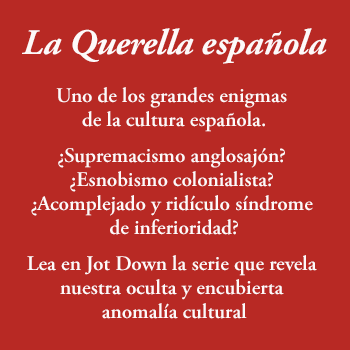







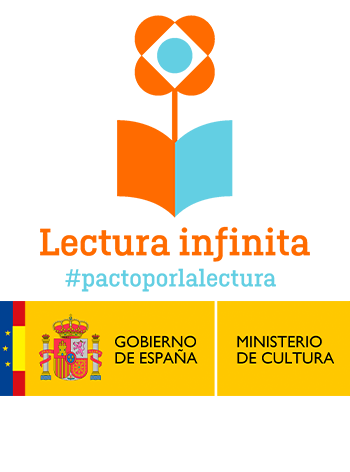
Pingback: The value of emotional intelligence in compliance audits | IMAGO
Pingback: El valor de la inteligencia emocional durante auditorias de cumplimiento | IMAGO
Pingback: La valeur de l’intelligence émotionnelle lors d’un audit de conformité | IMAGO
Pingback: Psychosocial risk factors in the auditing context | IMAGO